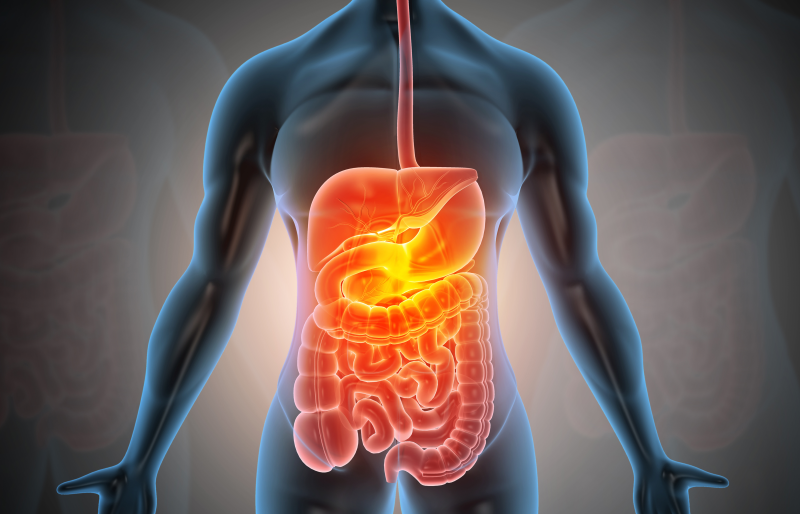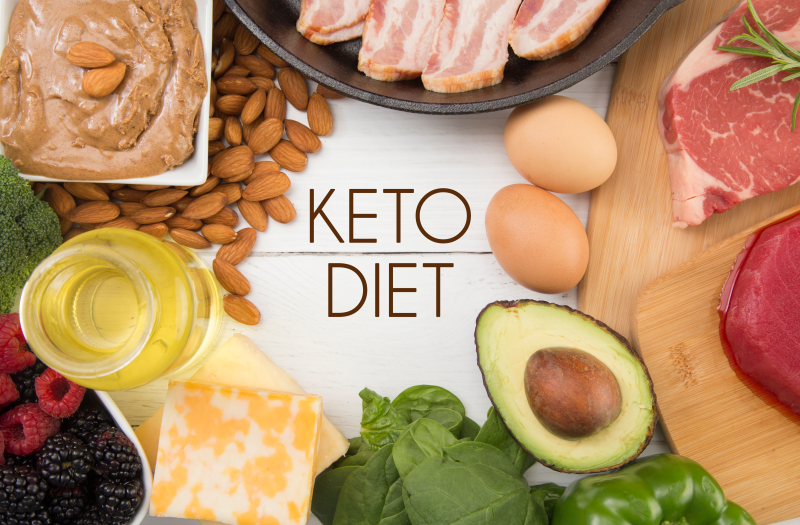Chronic inflammation plays a primary role in the development of serious health issues and increases the risk of heart disease, cancer, diabetes, and neurodegenerative disorders.
Dietary and lifestyle choices significantly impact your body’s inflammatory responses, and following an anti-inflammatory diet can help improve overall health and reduce the risk of chronic diseases.
Discover the best anti-inflammatory foods and learn why highly processed foods are a well-known risk factor for chronic inflammation and poor health.
What is inflammation?
Inflammation is a critical component of the body’s immune response. Injury, infection, or exposure to potentially harmful substances triggers the release of pro-inflammatory mediators that activate immune cells to initiate defense and repair mechanisms.
The body relies on a complex interplay between pro-inflammatory and anti-inflammatory compounds to promote and resolve inflammation. This balance ensures that inflammation is appropriately controlled, preventing excessive damage while protecting the body from threats.
While acute inflammation is crucial in promoting healing, it can contribute to significant tissue damage if the release of pro-inflammatory messengers is persistent or dysregulated.
Dietary and lifestyle habits and exposure to environmental toxins can disrupt this balance, triggering unresolved and ongoing inflammation.
Chronic inflammation impairs normal physiological processes and contributes to the development of cardiovascular disease, high blood pressure, diabetes, cancer, and Alzheimer’s disease.
Additionally, persistent and systemic inflammation can dysregulate the immune system, increasing the risk of infection and autoimmune-related health issues such as rheumatoid arthritis, inflammatory bowel disease (IBD), and Crohn’s disease.
Watch the video below to discover the best anti-inflammatory food you should consume regularly.
Top causes of inflammation
Various dietary and lifestyle factors can trigger the persistent production of pro-inflammatory messengers, which can overwhelm the body’s capacity to regulate and resolve inflammation effectively.
Here are six common causes of inflammation.
1. Chronic stress
Stress triggers the release of pro-inflammatory cytokines such as interleukin-6 (IL-6) and tumor necrosis factor-alpha (TNF-?), which activate inflammation as part of the body’s natural defense mechanism.
However, chronic stress caused by everyday stressors doesn’t require an inflammatory response and can lead to sustained cytokine release, resulting in ongoing inflammation.
2. High-carb diet
A study published in Nutrients found that a diet high in carbohydrates and sugars is associated with elevated blood levels of inflammatory biomarkers.1
Dietary carbohydrates and sugars are rapidly metabolized into energy, creating large quantities of metabolic by-products, such as free radicals and reactive oxygen species (ROS). These volatile compounds induce oxidative stress and cellular damage, which trigger persistent inflammation.
“Carb and sugar intake is a major risk factor for chronic inflammation,” explains Dr. Berg. “This also explains why those who consume a high carb diet are at increased risk of poor health and chronic disease.”
3. Ultra-processed foods
Ultra-processed foods (UPFs) often contain unhealthy seed oils, modified starches, artificial ingredients, and synthetic preservatives.
Your immune system perceives these unfamiliar components as potential threats and triggers an inflammatory response to protect the body from these harmful substances.
In addition, UPFs have little to no nutritional value and can contribute to gut microbiome imbalances and nutritional deficiencies, which can exacerbate inflammation and negatively impact overall health.

4. Belly fat
Belly fat, especially the visceral fat surrounding your organs, is metabolically active and releases adipokines, a group of potent inflammatory proteins.
A study published in ImmunoTargets and Therapy summarizes, “When adipose tissue expands during obesity, there is an increase in pro-inflammatory and a reduction in anti-inflammatory adipokines, which contributes to local and systemic inflammation.”2
5. Leaky gut
Food sensitivities, stress, gastrointestinal disorders, and alcohol consumption can damage the gut lining, allowing an influx of undigested food particles, toxins, and microbes into the bloodstream.
This intestinal permeability, also known as leaky gut, is a significant contributing factor to persistent immune responses and systemic inflammation.
6. Alcohol
The body perceives alcohol as a toxin, which triggers the release of pro-inflammatory messengers, including IL-6 and TNF-?, initiating an inflammatory response to mitigate the harmful effects of alcohol detoxification.
In addition, alcohol disrupts normal cellular functioning, contributes to nutritional deficiencies, and impairs the liver cleanse pathways, all of which promote inflammation and worsen chronic inflammatory conditions.

The best anti-inflammatory diet
An effective and sustainable anti-inflammatory diet focuses on removing foods that worsen inflammation while focusing on nutrient-dense, whole foods rich in essential vitamins, minerals, antioxidants, and healthy fats.
Here’s how to approach an anti-inflammatory dietary pattern.
Follow Healthy Keto®
Limiting sugars and carbohydrates is crucial to minimize inflammation due to the pro-inflammatory impact of sugar and carbohydrate metabolism.
Research published in Annals of Medicine confirms this, reporting that low-carb, high-fat ketogenic diets have the potential to significantly reduce levels of inflammatory mediators.3
The authors also found that the ketogenic diet led to more substantial weight loss than low-fat diets. A healthy weight supports the body’s ability to resolve inflammation, highlighting the importance of healthy fats in addressing chronic inflammation.
Cells and tissues require health-promoting fatty acids found in extra virgin olive oil, grass-fed meats, fatty fish, dairy, seeds, and nuts to produce anti-inflammatory compounds crucial for reducing chronic inflammation and maintaining overall cellular health.
In contrast, refined seed oils and trans fats found in fried foods, processed meats, ready-made desserts, and baked goods directly stimulate the release of inflammatory cytokines.
To maximize the anti-inflammatory effects of a low-carb diet, it’s crucial to follow Healthy Keto. This nutritious high-fat meal plan incorporates organic whole foods, grass-fed meat, oily fish, and organic full-fat dairy, making it an excellent dietary strategy to reduce inflammation.

Incorporate plenty of anti-inflammatory foods, herbs, and spices
Healthy Keto focuses on a wide range of nutritious foods, herbs, and spices with potent anti-inflammatory properties.
Some of the best anti-inflammatory foods to regularly consume on a Healthy Keto diet include:
- Oily fish such as salmon, sardines, and mackerel
- Cruciferous vegetables, including broccoli, Brussels sprouts, cabbage, and arugula
- Avocados
- Mushrooms
- Extra virgin olive oil
- Coconut oil
- Pasture-raised eggs
- Bone broth
- Organic dairy
- Nuts and seeds
- Garlic
- Ginger
- Turmeric
- Berries such as blueberries, blackberries and raspberries
In addition, grass-fed beef is one of the best anti-inflammatory foods in the world due to its high concentration of glutamine, a critical amino acid needed to maintain the integrity of the gut lining.
Regularly consuming glutamine-rich foods helps prevent leaky gut, a significant trigger of chronic inflammation.

Avoid phytate and oxalate-rich foods
Although the Mediterranean diet is often hailed as one of the best anti-inflammatory diets, its relatively high content of foods containing lectins and oxalates may contribute to inflammation in sensitive individuals.
Lectins are plant-derived compounds in whole grains and legumes that bind to the gut lining, triggering immune responses and local inflammation. In addition, lectins can contribute to intestinal damage and worsen a leaky gut.
Oxalate-rich foods such as spinach, baked potatoes, navy beans, and yams can also irritate the gut and contribute to intestinal inflammation. This can be especially problematic for those with gastrointestinal disorders such as irritable bowel syndrome (IBS) and Crohn’s disease.
Avoid processed foods
A study published in Cureus highlights a direct link between the consumption of ultra-processed foods (UPFs) and a constant inflammatory environment, significantly increasing the risk of chronic diseases.4
Focus on minimally processed whole foods such as non-starchy vegetables, high-quality proteins, and healthy fats. It’s also crucial to always check labels and avoid products with unnecessary additives, artificial ingredients, refined sugars, seed oils, and modified starches.

Tips for reducing inflammation
In addition to making dietary changes, adjusting your eating schedule and utilizing anti-inflammatory remedies can profoundly impact your body’s ability to resolve inflammation.
Here are a few steps you can take to reduce inflammation.
Practice intermittent fasting
Intermittent fasting, which involves cycling between periods of eating and fasting, can help reduce inflammation by allowing the body to enter a state of autophagy.
Autophagy is a cellular repair and recycling mechanism that helps remove damaged cellular components and regenerate cells, which reduces oxidative stress and inflammation.
Take stinging nettle root
According to evidence published in Heliyon, stinging nettle root is a rich source of polyphenols with potent anti-inflammatory properties.5
The study suggests that stinging nettle root extract is effective in reducing acute inflammation and has shown promise in managing chronic inflammatory diseases such as rheumatoid arthritis.
Maintain optimal vitamin D levels
Vitamin D plays a vital role in cellular function and immune system regulation, and vitamin D deficiency has been associated with an increased risk of inflammatory health problems.
Although this essential fat-soluble vitamin can be obtained from sunlight exposure, factors such as age, geographical location, and skin tone can reduce vitamin D absorption, which explains why almost 50 percent of U.S. adults have inadequate vitamin D levels.
Research published in Nutrients found that vitamin D3 is safe, effective, and associated with significantly lower levels of pro-inflammatory biomarkers, including IL-6 and TNF-?.6

Key takeaways
Chronic inflammation interferes with normal cellular and physiological function and is a critical factor in the development of diabetes, metabolic syndrome, and heart disease.
A nutritious low-carb meal plan such as Healthy Keto is a highly effective and sustainable anti-inflammatory diet, especially when combined with intermittent fasting.
This dietary approach limits pro-inflammatory sugars, carbs, and processed foods while focusing on nutrient-rich whole foods that naturally support the body’s capacity to resolve inflammation.
FAQ
What is the best anti-inflammatory diet?
A low-carb ketogenic diet, especially when focusing on nutritious whole foods such as Healthy Keto® in combination with intermittent fasting, is an excellent strategy to reduce inflammation.
What foods can you eat on an anti-inflammatory diet?
Some of the best foods to eat on an anti-inflammatory diet include grass-fed beef, oily fish, cruciferous vegetables, avocado, pasture-raised eggs, seeds, nuts, turmeric, ginger, and garlic.
In addition, healthy fats, such as grass-fed butter, olive oil, coconut oil, lard, and ghee, promote the body’s ability to produce anti-inflammatory mediators needed to resolve chronic inflammation.
What is the number one food for reducing inflammation?
High-quality grass-fed beef is one of the most powerful anti-inflammatory foods due to its high concentrations of glutamine. This critical amino acid is essential for optimal gut lining function and helps prevent leaky gut, a key driver of chronic inflammation.
What foods cause inflammation?
The most pro-inflammatory foods include sugars, carbs, and processed foods, typically packed with unhealthy seed oils, refined proteins, modified starches, synthetic additives, and artificial preservatives.
These foods promote inflammatory immune responses and disrupt the body’s ability to resolve inflammation, directly contributing to chronic inflammation and increasing the risk of serious health conditions.
How can I reduce inflammation naturally?
A healthy diet to reduce inflammation naturally focuses on avoiding pro-inflammatory foods and beverages such as sugars, carbohydrates, processed foods, alcohol, and sugary soft drinks.
In addition, it’s crucial to consume plenty of nutritious whole foods with anti-inflammatory properties, including grass-fed beef, cruciferous vegetables, oily fish, seeds, nuts, avocados, and coconut oil.
Are eggs an inflammatory food?
No eggs aren’t considered an inflammatory food. In fact, organic and pasture-raised eggs are rich sources of various anti-inflammatory nutrients, including omega-3 fatty acids, vitamin D, lutein, and zeaxanthin.
Sources
- https://www.mdpi.com/2072-6643/16/13/2051 ?
- https://www.ncbi.nlm.nih.gov/pmc/articles/PMC4970637/ ?
- https://www.ncbi.nlm.nih.gov/pmc/articles/PMC4025600/pdf/ANN-46-182.pdf ?
- https://www.ncbi.nlm.nih.gov/pmc/articles/PMC10663139/ ?
- https://www.sciencedirect.com/science/article/pii/S2405844022010052 ?
- https://www.ncbi.nlm.nih.gov/pmc/articles/PMC7400886/ ?








